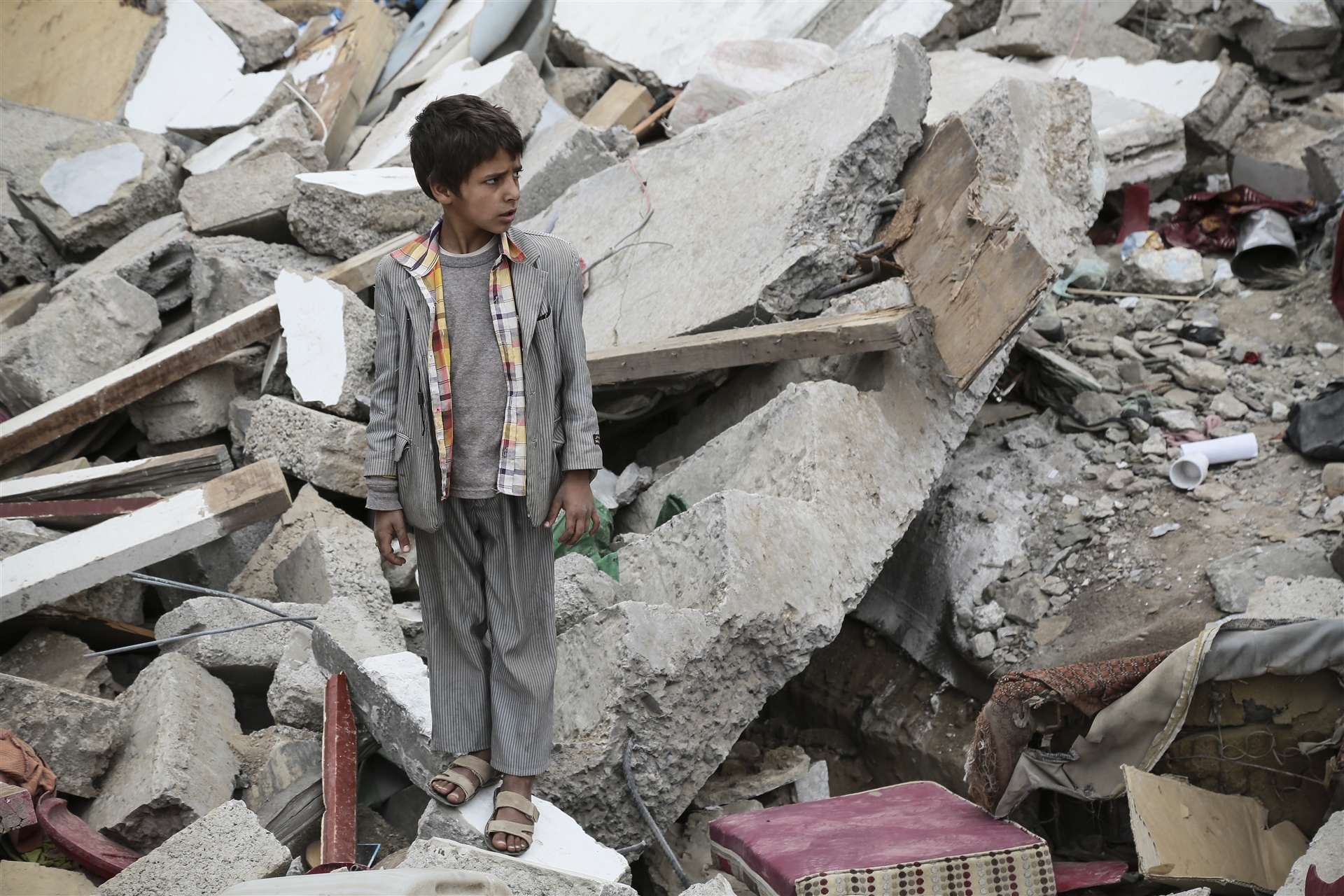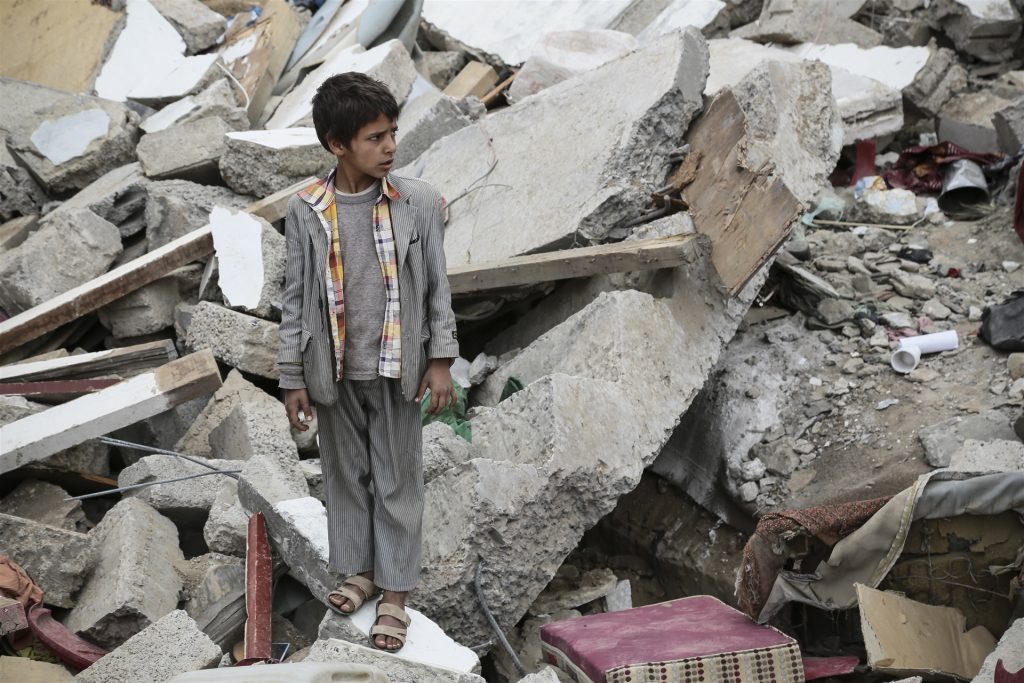Andrew Gibson explores the crisis unfolding in Yemen, the role of the West, and what can be done to help.
The roots of the crisis in Yemen can be found in 2011, when the Arab spring swept through the country, rocking the administration of President Ali Abdullah Saleh, who had by then been in power for over 33 years. Houthi groups angered by his corruption and ties to the Saudis and the USA pushed Saleh into leaving office after an agreement between the Houthis and other opposition groups. Saleh’s Vice President, Abdrabbuh Mansur Hadi, then took the reins but failed to unite the country.
In 2014 the Houthis, who had made fighting corruption the centrepiece of their political agenda, took the capital Sana’a, in alliance with the ex-president Saleh who had switched sides and now backed their struggle. The Houthis kept pressure on Hadi and after an attack on the Presidential Palace and his own private residence, Hadi resigned.
Subsequently, the Houthis declared themselves in control of the government, dissolved parliament and installed an interim revolutionary committee. Hadi, who had by now fled to Aden where he declared himself the legitimate leader and that Aden was now the capital of Yemen, now called on forces loyal to him to rise up. In 2015 the Saudi-led military coalition stepped in to reinstate Hadi as President. A bombing campaign and naval campaign followed, as well as the deployment of Saudi ground forces into Yemen.
Support from Britain and for the Saudi intervention led to a humanitarian catastrophe that could be called genocide. To declare an interest, in 2016 I was a Royal Navy sailor, and was deployed to the Bab Al-Manbab strait, just off the coast of Yemen, to escort merchant ships and US intelligence ships past a Houthi controlled area. Our ships would patrol the Houthi controlled area with battle ensign raised, in a state of readiness to be attacked or to attack. Provocatively, we would sail close to the shore to antagonise the Houthis, and from the upper deck you could see Houthi controlled areas being bombed and fires burning. True British gunboat diplomacy.
On the way home from deployment we stopped in Saudi Arabia, hosted a “cock and arse” party (pardon the language). This is Naval shorthand for events where the Captain invites dignitaries on board to wine and dine in the hope they buy more arms off us – in this case a Wildcat helicopter. The cruel irony here is that air strikes have accounted for roughly 2/3 of the 11,700 civilian deaths since 2015. Saudi Arabia remains the UK’s largest arms buyer and the UK has licenced £5.3bn worth of arm sales to Saudi Arabia since the war started. The government has started sales to Saudi Arabia again on the 7th of July 2020 after a campaign by Campaign Against Arms Trade (CATT) managed to obtain a year-long ban after the Court of Appeal ruled that it had to be assessed whether Saudi Arabia had violated international human rights in its military campaign against the Houthis. Typically, the final ruling judged led that these were “isolated incidents“.

Fast forward to today, and Yemen has the largest humanitarian crisis in the world with 80% of the population (24 million people) requiring humanitarian aid, including 12 million children. 20 million people need help securing food, with the UN stating that 10 million are “one step away from famine”. The number of acutely malnourished children is 2 million which could increase to 2.4 million in 6 months, with tens of thousands of children developing severe acute malnutrition. 18 million do not have enough clean water or adequate access to sanitation. With Covid-19 spreading through the country, the problem is escalating, with only half of the 3,500 health facilities are fully functioning. The ones that are still open have a lack of basic supplies and PPE.
The crisis is worsening and Britain and the West are prioritising capital – in this case very nakedly in terms of arms sales – over human lives. We need to do all we can in support of the Yemeni people during this horrific time, you can donate at yemencrisis.carrd.co where you can donate to a specific cause or charity. There is also a template to send to your MP if you are in Britain or to your representatives if you are in the USA, to stop the sale of arms to the Saudi Arabian government and provide basic necessities to the Yemeni people like water, food and medical aid. You can even donate just by watching a video on YouTube or streaming it in the background whilst you work, even the smallest gesture can make a massive difference. I also encourage you to visit yemenhumancrisis.carrd.co which has petitions running on their site to sign. You can make a big difference in trying to right this wrong and be the voice for the Yemeni people. Lastly, we should also be looking to campaign with ‘Campaign Against Arms Trade’ and fully support them, who were instrumental in getting a year long ban on the sale of arms to Saudi Arabia and have also campaigned on behalf of the BLM movement and the Palestinians.
Andrew Gibson



